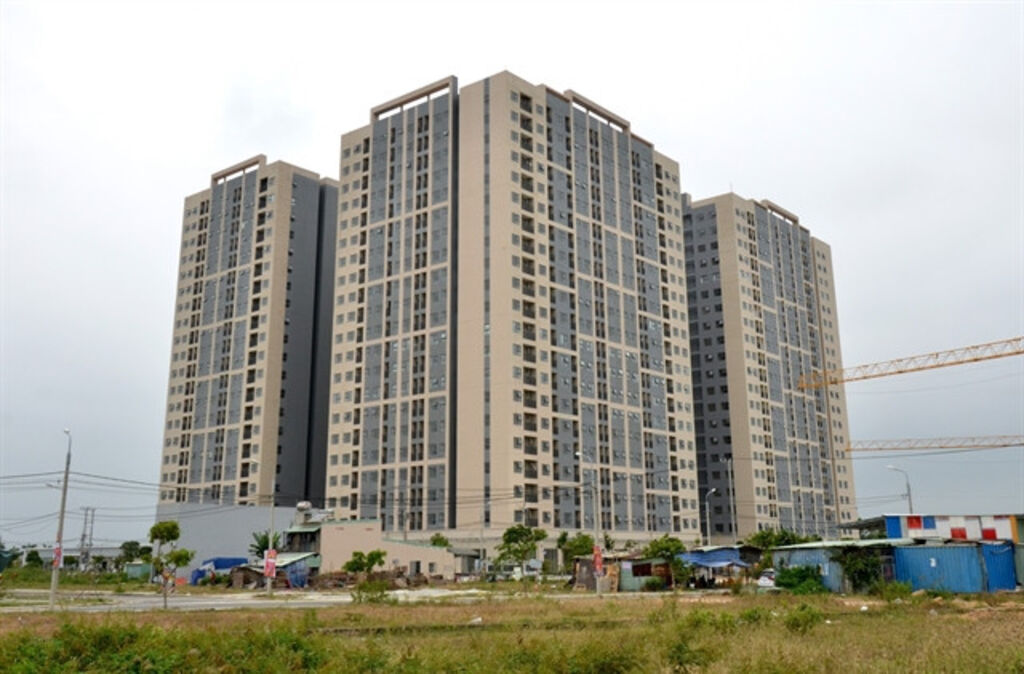 |
| A social housing project in Da Nang__Photo: VNA |
The Ministry of Finance (MOF) has recently proposed the simplification and decentralization of investment policy approval procedures. The move is expected to improve the investment climate and create more favorable conditions for enterprises, while ensuring effective control of economic, social and environmental risks.
The draft law proposes several groups of projects exempt from investment policy approval procedures. These include projects already included in national sectoral master plans or provincial master plans; projects with investors selected through land auction or bidding for land use, including also projects subject to contractor appointment or those involving land repurposing; projects with investors winning the auction for the mining rights; projects on construction of infrastructure for cottage industry zones; and other projects as specified by the Government.
However, investment policy approval procedures would remain mandatory for projects subject to the Prime Minister’s investment policy approval that are likely to exert major impacts on the environment, involve national defense and security, or are executed in important sectors such as airports and seaports.
Provincial-level People’s Committees would consider approving investment policy for projects for which the State allocates or leases land not through auction or bidding for investor selection; projects requiring land repurposing; large-scale infrastructure works, industrial parks and urban areas; as well as projects to be implemented in island, border or coastal areas.
The draft also proposes transferring competence from provincial-level People’s Committees to chairpersons of provincial-level People’s Committees in order to enhance the role of the heads. In addition, projects currently subject to the National Assembly’s investment policy approval would be decentralized to the Prime Minister, except special important projects or otherwise directed by the Politburo or the Secretariat.
The MOF further proposes combining the current separate two steps of investment policy approval and investor selection into a single step to be applied to certain projects, e.g., projects for which the State allocates or leases land not through auction or bidding, or projects with investors appointed in special cases under the Bidding Law.
Also, the procedures for appraisal of investment policy would be simplified by removing overlapping requirements. Functional agencies would instead focus on assessing the conformity of projects with relevant sectoral and provincial master plans, as well as factors actually relevant to project implementation.
However, some experts have raised their concerns over the proposal, still emphasizing the importance of investment policy approval. In their view, investment policy approval serves as a legal basis for recognizing and safeguarding the lawful rights and interests of investors in implementing investment projects. This also guarantees the implementation of the State’s commitments to investors regarding investment incentives and special policies approved by competent state agencies. At the same time, investment policy approval is regarded as a tool for screening sensitive projects that are likely to impact socio-economic development, national defense and security, and the environment.
Meanwhile, it is suggested by businesses that, to be finalized, the draft law should provide fast-track procedures for investment policy approval. Particularly, policy proposals related to investment policy approval procedures need be placed within the framework of legal documents governing the implementation of investment projects in order to ensure consistency and clarity.- (VLLF)









